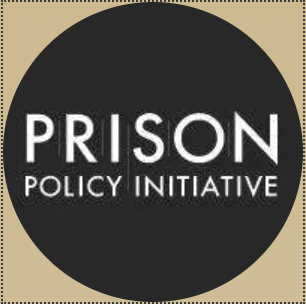
Resources
Find Out More About Mass Incarceration
Through These Impeccable Sources
Organizations
The ACLU has evolved in the years since from this small group of idealists into the nation’s premier defender of the rights enshrined in the U.S. Constitution. With more than 1.7 million members, 500 staff attorneys, thousands of volunteer attorneys, and offices throughout the nation, the ACLU of today continues to fight government abuse and to vigorously defend individual freedoms including speech and religion, a woman’s right to choose, the right to due process, citizens’ rights to privacy and much more.
Vera Institute of Justice is powered by hundreds of advocates, researchers, and activists working to transform the criminal legal and immigration systems until they’re fair for all. Founded in 1961 to advocate for alternatives to money bail in New York City, Vera is now a national organization that partners with impacted communities and government leaders for change. We develop just, antiracist solutions so that money doesn’t determine freedom; fewer people are in jails, prisons, and immigration detention; and everyone in the system is treated with dignity.
The Marshall Project is a nonpartisan, nonprofit news organization that seeks to create and sustain a sense of national urgency about the U.S. criminal justice system. We have an impact on the system through journalism, rendering it more fair, effective, transparent and humane.
The Equal Justice Initiative is committed to ending mass incarceration and excessive punishment in the United States, to challenging racial and economic injustice, and to protecting basic human rights for the most vulnerable people in American society.
The Prison Policy Initiative is a non-profit, non-partisan Prison Policy Initiative produces cutting edge research to expose the broader harm of mass criminalization, and then sparks advocacy campaigns to create a more just society.
Poverty is treated like a crime in the United States, and we believe it shouldn’t be. Equal Justice Under Law is a nonprofit law organization that uses class action impact litigation to set legal precedent and change cultural norms so that our justice system treats rich and poor equally.
The Sentencing Project promotes effective and humane responses to crime that minimize imprisonment and criminalization of youth and adults by promoting racial, ethnic, economic, and gender justice.
O’Mara Law Group has put together an extensive guide to help family members or friends in case a loved one is arrested, which is important to know if they are unfamiliar with the process. The guide includes information about the steps to take after the arrest, what their rights are, and what to be aware of if your loved one has mental health issues or disabilities, if they are a minor, and much more.
Books
The New Jim Crow by Michelle Alexander, a civil rights litigator and legal scholar. Called the "secular bible for a new social movement" by Cornel West, it discusses race-related issues specific to mass incarceration in the United States. Alexander uses strong legal and statistical documentation to make her arguments and the book has galvanized thousands to this horrific issue.
Between the World and Me, by Ta-Nehisi Coates. Written as a series of letters to his son, Coates gives us a "searing meditation on what it means to be black today," wrote critic Michiko Kakutani in the New York Times. Coates has become the James Baldwin of our era, with his truly disquieting and accurate portrayal of the situation of race in America today.
Slavery By Another Name: The Re-Enslavement of Black Americans from the Civil War to World War ll by University of Virginia historian Douglas A. Blackmon won the Pulitzer Prize when it came out in 2009. This historical expose brings to light one of the most shameful chapters in American history, the age of "Neoslavery," through original documents and personal narratives.
The Fire Next Time by James Baldwin. If you haven't read this since college, get a copy. This became a shocking best-seller in 1966, galvanizing a nation by showing a powerful and disturbing picture of racial injustice in American.
Until We Reckon by Danielle Sered, the executive director of Common Justice. The focus of reformers has been almost entirely on nonviolent and drug offenses. Sered's Until We Reckon argues with searing force and clarity that our communities are safer the less we rely on prisons and jails as a solution for wrongdoing. Sered asks us to reconsider the purposes of incarceration and argues persuasively that the needs of survivors of violent crime are better met by asking people who commit violence to accept responsibility for their actions and make amends in ways that are meaningful to those they have hurt--none of which happens in the context of a criminal trial or a prison sentence.
Freedom Dreams by Robin D.G. Kelley is a staple in the study of the Black radical tradition. Unearthing the thrilling history of grassroots movements and renegade intellectuals and artists, Kelley recovers the dreams of the future worlds Black radicals struggled to achieve. Focusing on the insights of activists, from the Revolutionary Action Movement to the insurgent poetics of Aimé and Suzanne Césaire, Kelley chronicles the quest for a homeland, the hope that communism offered, the politics of surrealism, the transformative potential of Black feminism, and the long dream of reparations for slavery and Jim Crow. This classic history of the power of the Black radical imagination is as timely as when it was first published.
In Repair Katherine Franke makes a powerful case for reparations for Black Americans by amplifying the stories of formerly enslaved people and calling for repair of the damage caused by the legacy of American slavery. Repair invites readers to explore the historical context for reparations, offering a detailed account of the circumstances that surrounded the emancipation of enslaved Black people in two unique contexts, the Sea Islands of South Carolina and Davis Bend, Mississippi, Jefferson Davis' former plantation.
Articles
Getting Incarcerated Individuals the Parole They Deserve by TL’s own Paula Derrow
Ever Wonder How The Escape At Clinton Happened? A New York Senatorial Hearing Gives Damning Evidence of How Our System Works. "Prisoners are under lock and key twenty-four hours a day, seven days a week, and therefore they must depend on their keepers for all their human needs. They are held behind walls and closed doors, living “in a shadow world that only dimly enters our awareness.”2 American prisons in particular “mainly confine the most powerless groups . . . poor people who are disproportionally African-American and Latino.” Read Full Report Here
“Did a Dubious Confession Sway a Medical Examiner’s Autopsy in a Texas Death Pentalty Case?;
Texas will soon execute a man based on the conclusions of a forensic pathologist with a troubling history.”
An article on how Texas was about to execute a man for the "murder" of a man who died of a heart attack?
“Criminal justice reform is breaking down before our eyes” from The Washington Post
“The Justice Department's Shocking Report; St. Louis Post- Dispatch: Why Did the Michael Brown Shooting Happen Here?” from The New York Times
“A Tale of Two Tyras” from The Guardian
Why is 19-year old Tyra Patterson sentenced to life in prison when she tried to help the victim?
Law and Disorder, a Radio Program created by lawyers Michael Ratner and Michael Smith, gives listeners a rare legal perspective on issues of civil liberties, privacy, right to dissent and the horrendous practices of torture exercised by the US government. This program examines the political forces and legislation that are moving the United States into a police state. Click red above for your local station.
“The Dark Side of Thomas Jefferson” and the Tragic Beginning of Slavery in American, an article in Smithsonian magazine by Henry Wiencek about the real heroes and villains of this fatal moment in our history.














